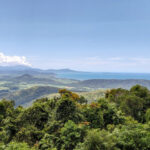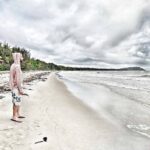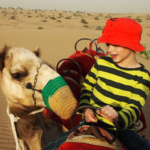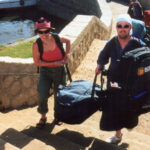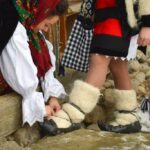Last year we went through Cyclone Jasper. We were fairly well prepared, but we should have been better prepared. I already wrote a little about that in a post titled “Mistakes we made in cyclone prep.” That was at the end of 2023. This year, 2024, cyclone season is just around the corner. I’ve been casually “prepping” all year, squirrelling away things we may need. I’m watching the devastation of Hurricane Helene as shared by some of my most-watched YouTubers. I’m aware of the extreme floods in Kathmandu, and today Hurricane Milton is due to strike Florida. I have friends there, I hope everyone in its path stays safe. I have a feeling that extreme weather events will be affecting more and more of us going forward. This doesn’t have much to do with travel, but I’m going to add a travel angle. These are some of the steps we’ve taken, and items we have on hand for the coming wet season or monsoon. There are also some ideas for facing severe storms as you travel.
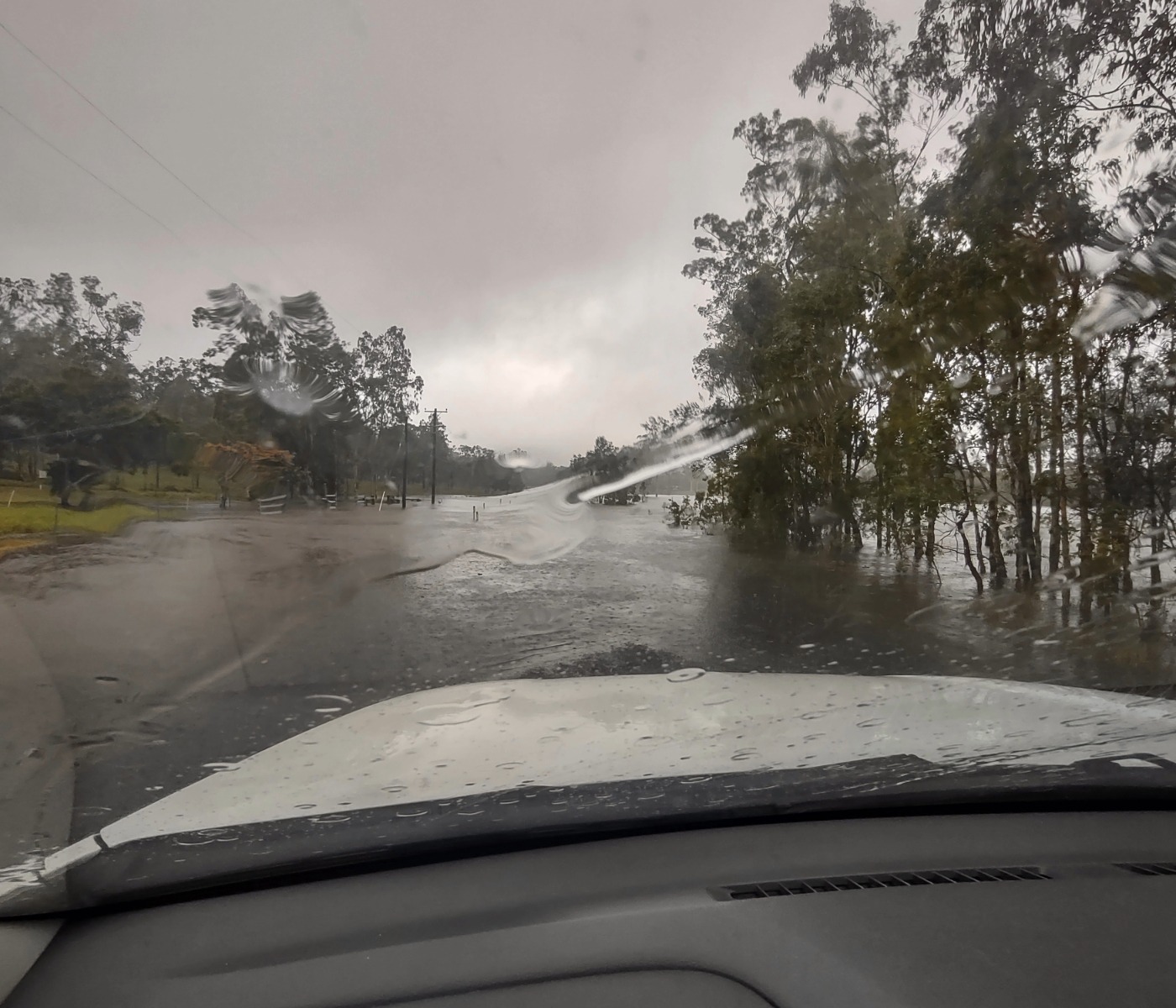
I also want to send our very best wishes to everyone affected, everywhere and say that I’m really impressed by us, the ordinary humans. People are pulling together in the aftermath. We experienced this first-hand last year in our community and I can see it happening around the world.
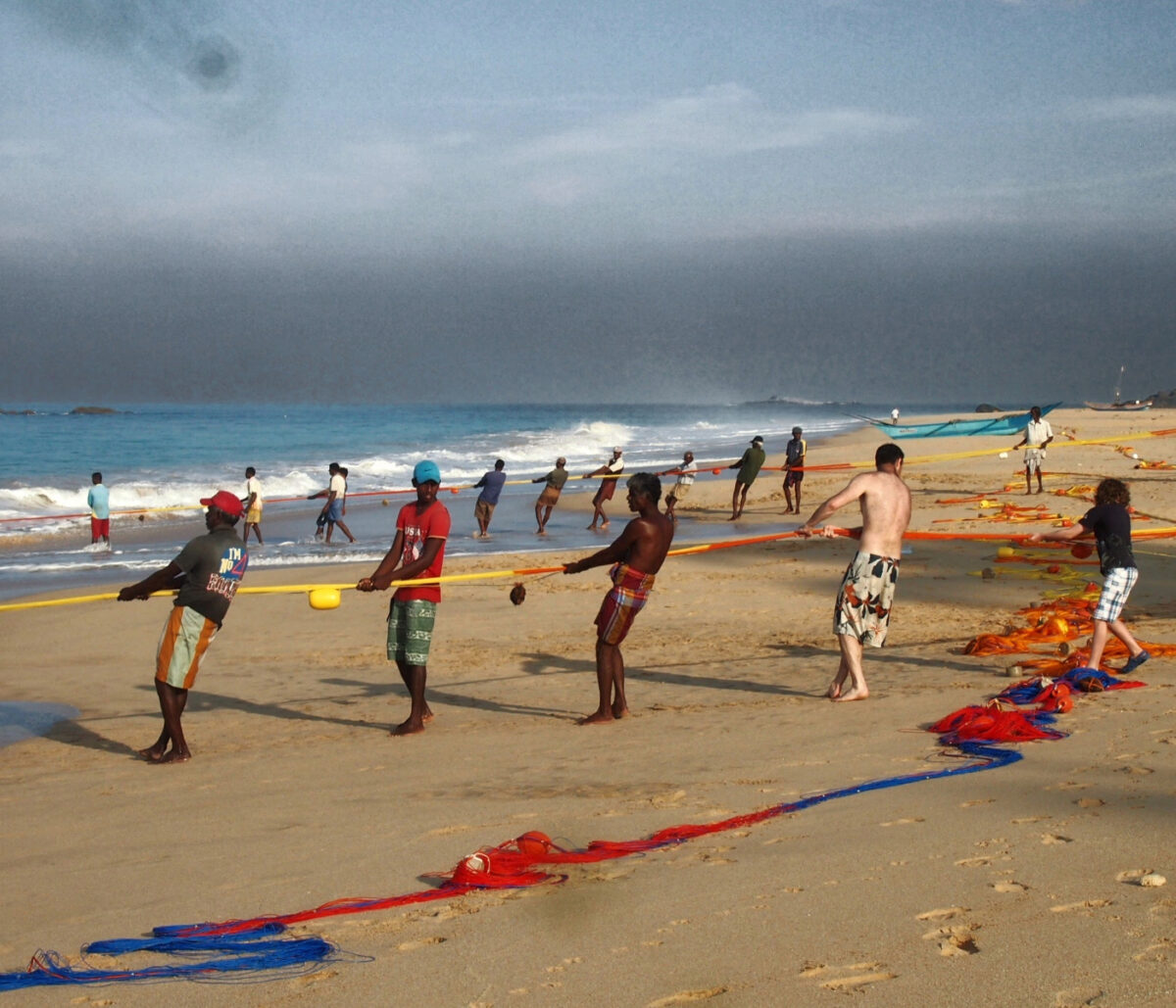
Humans working as a team and sharing what resources or skills they have. There have been a lot of deaths and tragedies, unimaginable horrors, but people are getting on with doing what they can to make things right.
Some storms you can’t prep for. I hope everyone who needed to evacuate in Florida is safely out.
Prepping and Travel
I would not visit anywhere flood-prone during the known danger period, now. However, we’ve taken risks in the past. I’ve waded through flood water in Bangkok and spent extended time experiencing the almost annual floods in Hoi An. For more on that, go to our post on the Hoi An floods. We were also in floods in Vang Vieng. These were non-destructive gradually rising floods. After seeing the rushing rivers of debris-filed runoff in NC, I’m never taking chances around flooding again.
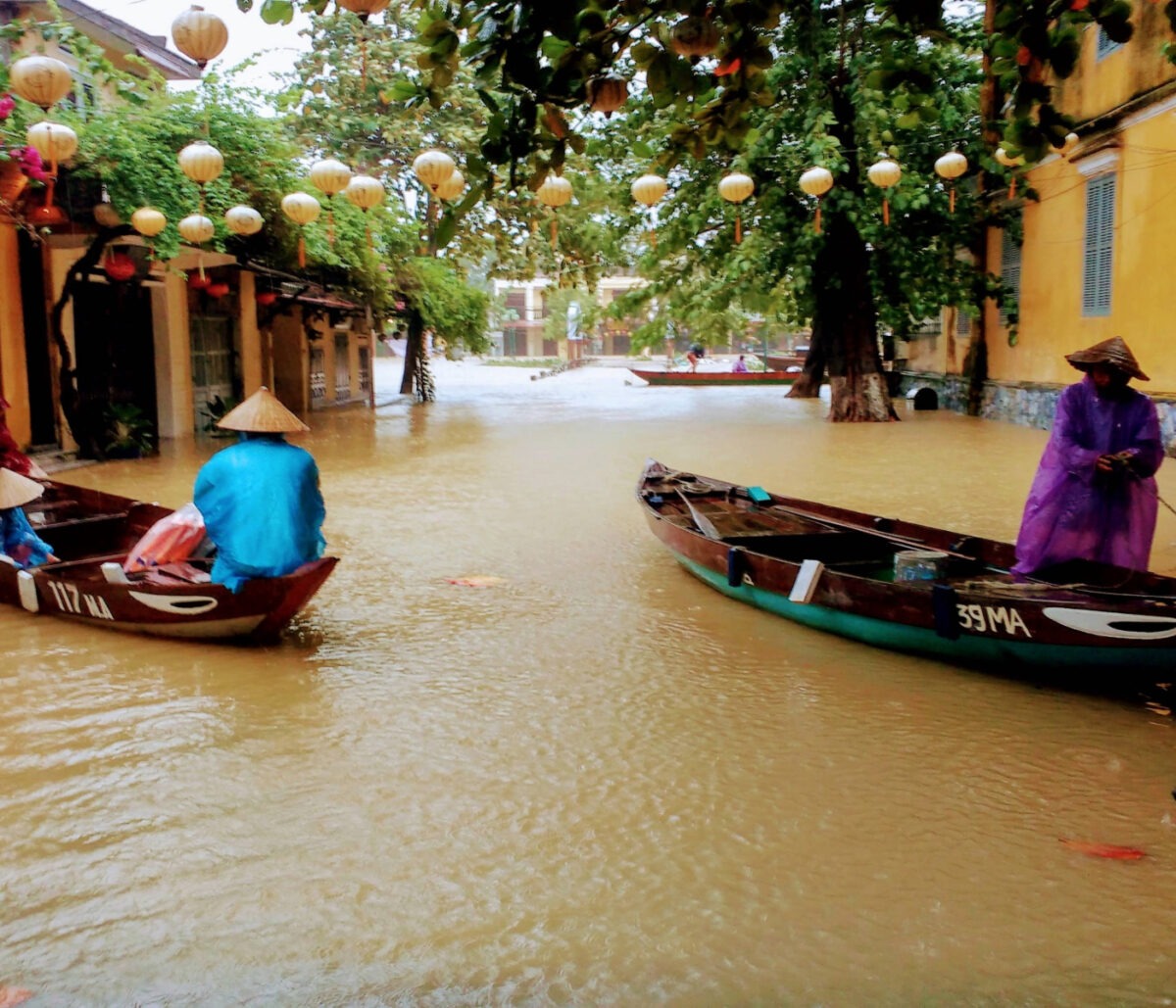
Lack is something you see as you travel the world. Lack of clean water, lack of heat, lack of refigeration, lack of roads, and lack of certain foods. People cope with inconveniences and I guess don’t see them as a lack at all unless lack impacts health or even life. I know I’ve never thought being freezing up Everest was something to be upset about, it was a privilege to be there. Having no water in Romania was an experience. None of us were crying over it and everyone was prepared.
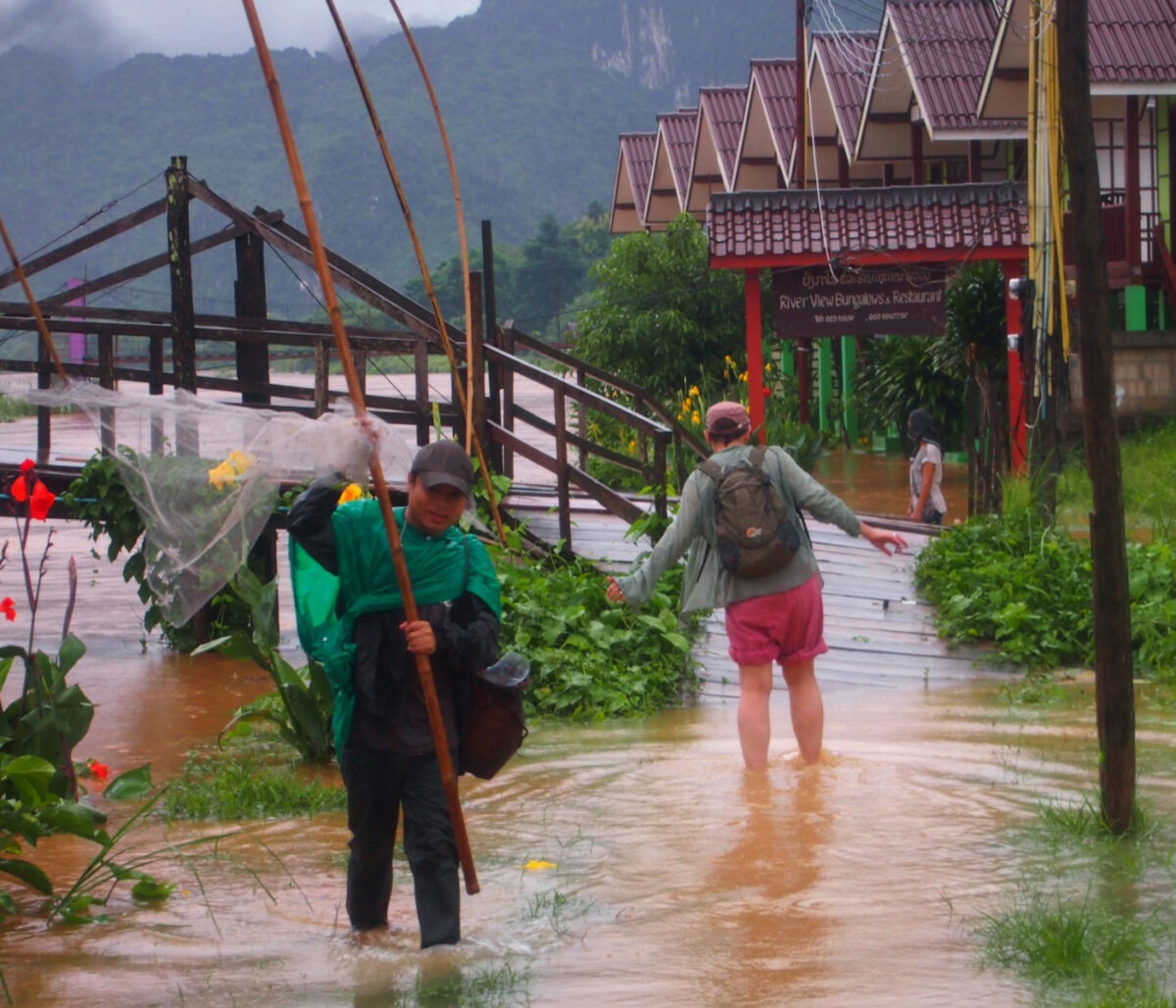
When we saw how the residents of Hoi An coped with the floods it was honestly shocking. Most people were full of smiles, laughing and joking as the lower floors of their houses submerged. Our landlady sent me a text “We have new swimming pool downstairs!”
After a few days of cleanup efforts, life went on as usual. There’s a lot of mental attitude involved in dealing with lack. We look back at our own cyclone experience last year as a pretty fun time. We were lucky to get off as lightly as we did, but having no electricity or wifi for 8 days was actually a good opportunity.
I have a bad feeling some people in the US will be out of power for a lot longer, but I heard somebody on YouTube say yesterday that if they have no power for a few days more they may as well leave it off for good. They’d found ways to cope.
Prepping – Items You Need
Let’s just have a little think here about things we all may need in an emergency situation. This is based on our personal experiences at home and on the road.
Your local government or council will probably have an “official” list of things you should do or have for emergency situations.
Books
Books are a luxury, but could also be essential. When you have no internet will you know everything you need to know? Do you need a first-aid book maybe? In our family, we have 2 certified first-aiders and I did 20 years working in hospitals, we’re good. But not everyone has this knowledge.
We packed our elder child off to take a first aid course and a life-saving course a year or so ago. It was to boost his employment potential, but these are great life skills. It’s something to think about.
Do you rely on recipes or other instructions on the internet? Maybe you need a hard copy at home.
And having no power or internet will give you more time to read, I have a stash of books here. This is one I bought yesterday because lately, everywhere I look this book is mentioned. I figured it was time to read it. During the last cyclone I read this one, it has some amazing insights (very aligned with my thinking, luckily) on raising kids.
Clean Drinking Water
We have spent a lot of time in countries, years ago, where you couldn’t drink the tap water. Back then, you also couldn’t trust bottled water in those countries and the reverse osmosis public water filtration systems didn’t exist. We used water purification tablets in our 1L steel water bottles. You can buy purification tabs here.
When we visited Kathmandu after the earthquake, the kids were really sick. It took us a while to figure out that we just couldn’t trust any water. The sodas we bought them occasionally were made from concentrate, the bottled water in our guest house was quite likely to be filled with tainted water. We learned to only drink water that had been boiled. Either boiled and cooled in our steel water bottles, or as black tea.
At home we have extensive water storage, we have a well (called a bore here). It works on mains electricity. I’d love to get a solar charger installed for the bore but that’s expensive. In an emergency we could use the generator to power the pump to fill the storage tanks.
In our 8 day power outage, we made our home storage tank water last for the full 8 days. We couldn’t get to a shop for the first 3 or 4 days. Once the roads were cleared we could get to the shops, but a lot of shelves were bare. Have some water stored, in buckets, the bath tub, water bottles and in water containers like this. I bought this one yesterday for more emergency backup.
In Port Douglas and Mossman, they had no tap water for days, maybe weeks after Jasper. People were using their swimming pool water to flush at home and there were no public WCs. That’s something else to think about. The council did eventually supply chemical toilets, but it took a while.
We were thankful that we don’t use the public water system and invited anyone to come and use our washing machine once our power came back on.
We have streams and ponds near our home and we can rely on them to be free from chemical pollutants. We have water filtration devices like this. A lot of people carry water filtration devices for travel. Think Lifestraw devices. We never did and never needed to, but it’s something to think about.
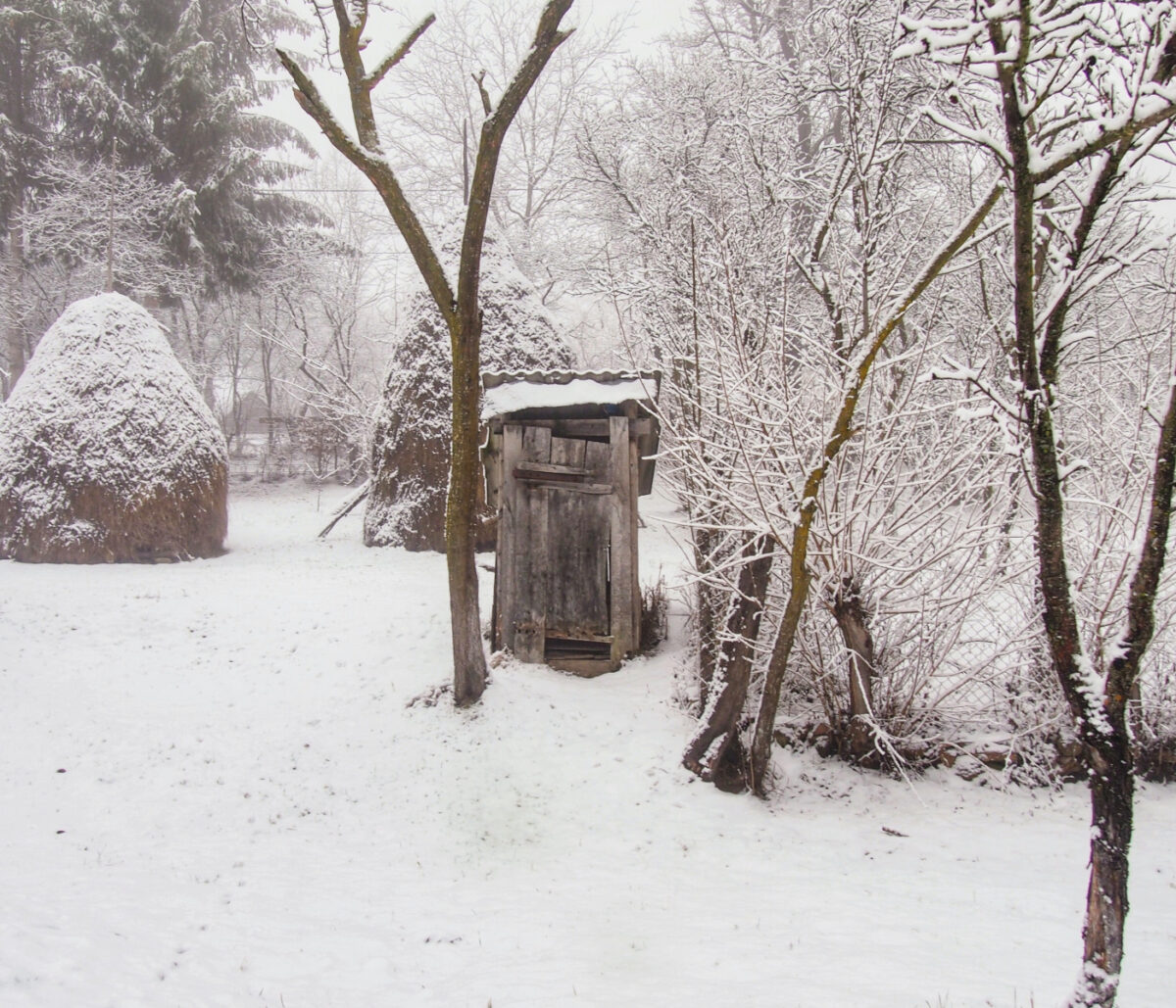
When it was very cold in Romania and once in Nepal, the water would freeze and we’d have no running water at all. We lived that way through choice. It was fun for us, and good practice. Paper plates came in handy when there was no water for washing up. We’d melt snow for cooking water or break the ice on the stream. We had a dry outhouse, it was fine.
Laundry
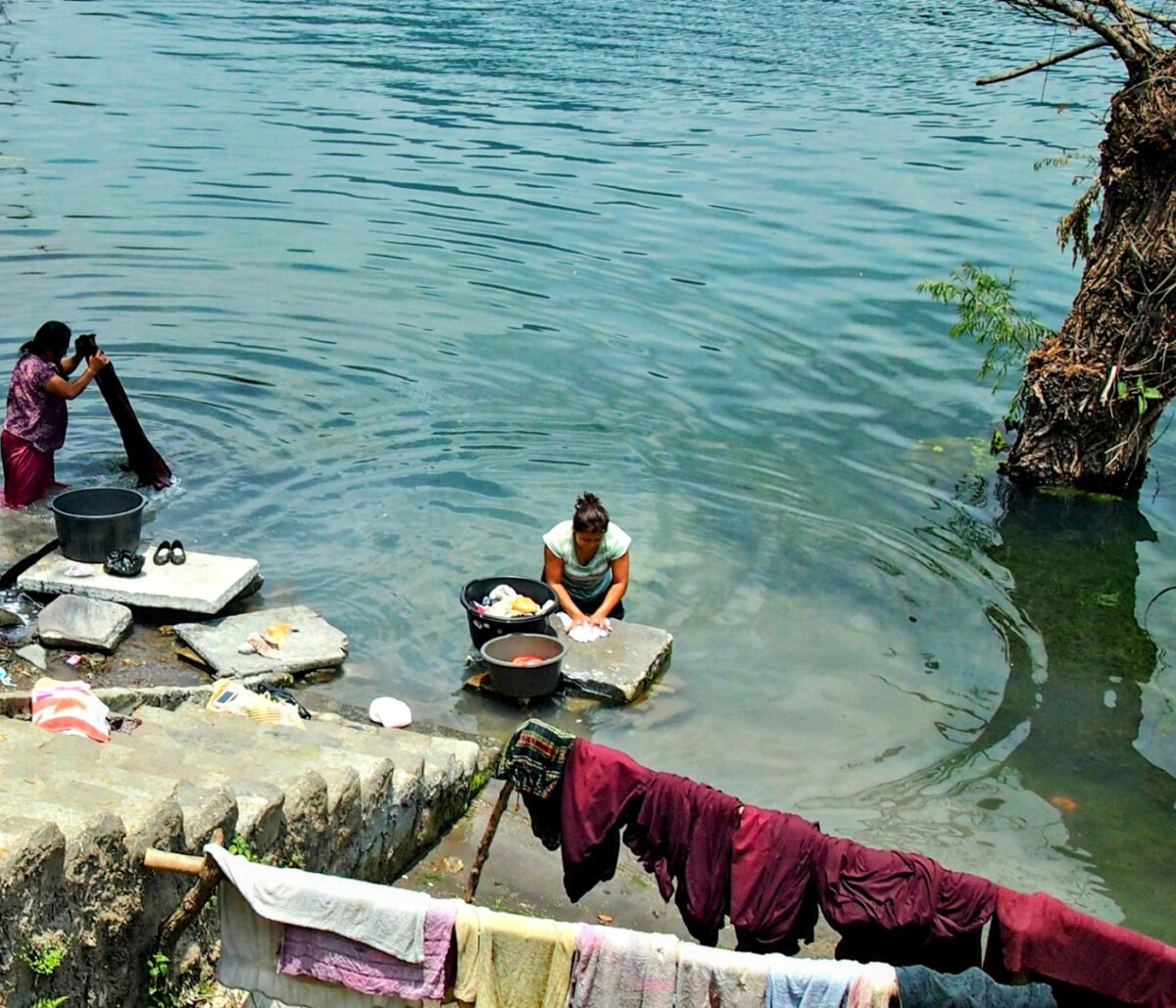
No laundry happened during that 8 day power outage. The generator wouldn’t have been able to cope and we didn’t have enough water in the tank to run the washing machine.
Before the cyclone hit I made sure all the laundry was done. That’s important in the tropics because dirty clothes grow black mold fast.
We had enough clothes, that was fine, but we ran out of towels. Have plenty of towels. The dog still had to go outside and we were constantly drenched by the rain. Our raincoats leaked, we got wet wearing coats in that sort of rain. If you need waterproof gear, get the good stuff. Ours are old.
I’m digging out our waterproof gear now and making sure it’s clean and on hand.
Here, in tropical Australia, we don’t need cold weather gear, but we have it, from when we lived in colder climates and from trekking in the Himalayas. We have plenty of clothes for every climate despite being minimalists. I think all the clothing I own would still fit in a good-sized backpack. Yes, we still have the backpacks. If we were faced with rising flood waters they’d be packed ready to head up the hill. It’s unlikely, but the lower portion of our land was flooded last year.
When we lived in Romania we had no washing machine for months. Eventually, we did buy one and installed it in our 100-year-old wooden farmhouse. It made life easier, but it wasn’t essential.
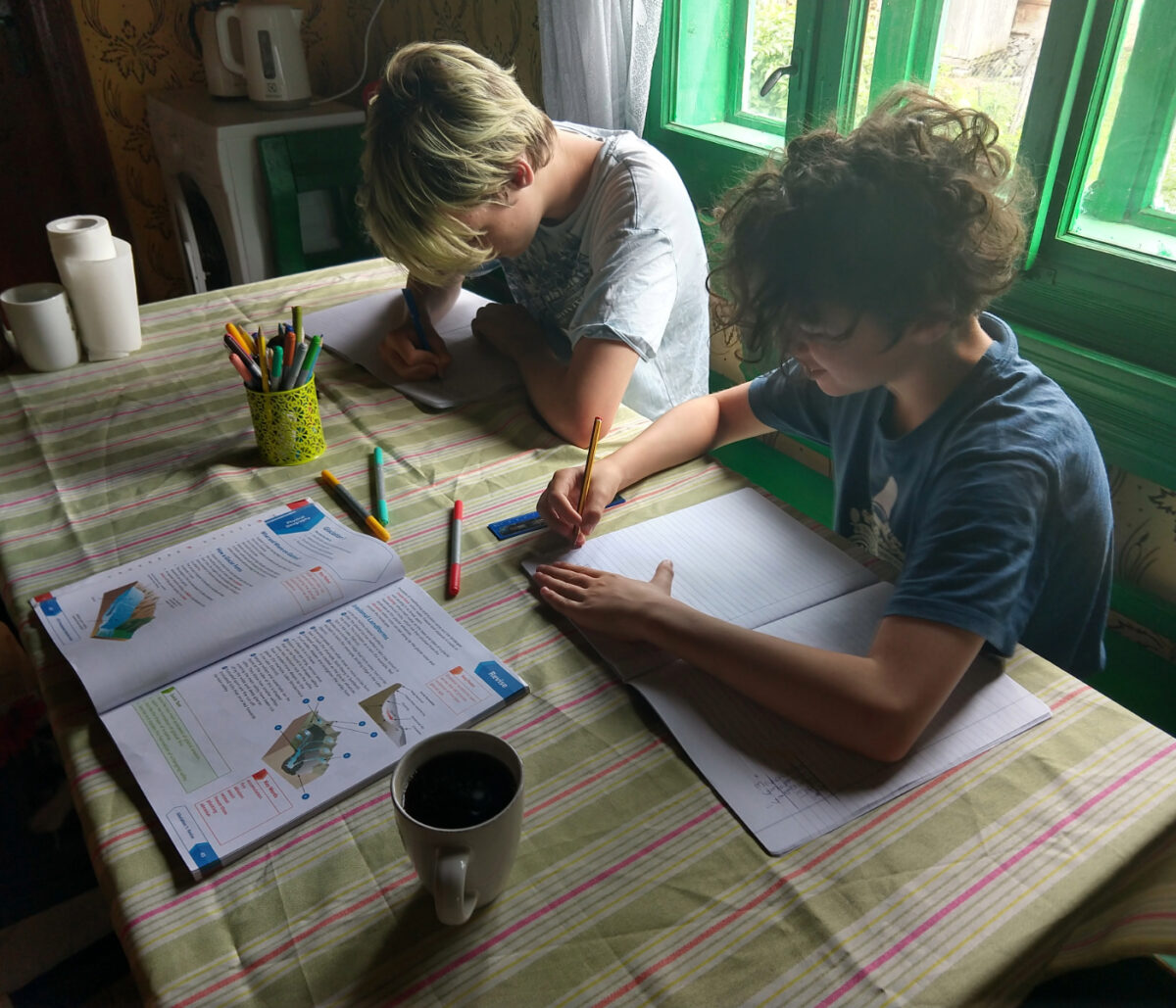
I’m very used to hand washing laundry, even sheets and towels. I hand wash items daily when we travel carry-on only.
I do have a Scrubba washbag now, I’ve never used it, but it may be a good thing to have. I remember my grandmother wringing out clothes with a mangle and using a washboard to scrub. Maybe we should get some of that stuff!
You’ll struggle to dry washing in cyclone rain situations. If you always use an electric dryer, do you have a washing line or rack to dry clothes?
Cash
When the power is out, or the internet, you won’t be able to pay by card or use a cashpoint or ATM. Have cash! If you’re travelling or at home, you’ll need cash.
We were in Cambodia once for a 3-day power outage. A truck crashed into a power line on the road from Thailand to Siem Reap. We had some cash, luckily. During that period there was no water in our guest house to flush or take showers.
We had baby wipes, we were OK. That was luck, not preparation. Who would have thought the power would go down like that?
WiFi and Communications
At our house in Queensland, there is no phone coverage, ever. We depended on the very unreliable wifi. It was off for 8 days after the cyclone.
We do know where we need to go to pick up a phone signal and we’ve had to go there pretty often. When the power is down there are normally loads of people there with the same idea.
After the first few days, once the floods subsided, we were able to get to our local pub. They had a generator and Starlink. We bought Starlink for our home as soon as the power came back on and it’s been great.
The pub was vital in that community push to get through this together. Everyone was going there to use the wifi (and buy drinks!) Luckily we already knew the managers well.
The other item I have stashed away is a wind-up radio. We didn’t have a radio of any kind last year but our elderly neighbour did. We learned from her, a veteran of many cyclones. I bought a radio like this. You need to know what’s going on.
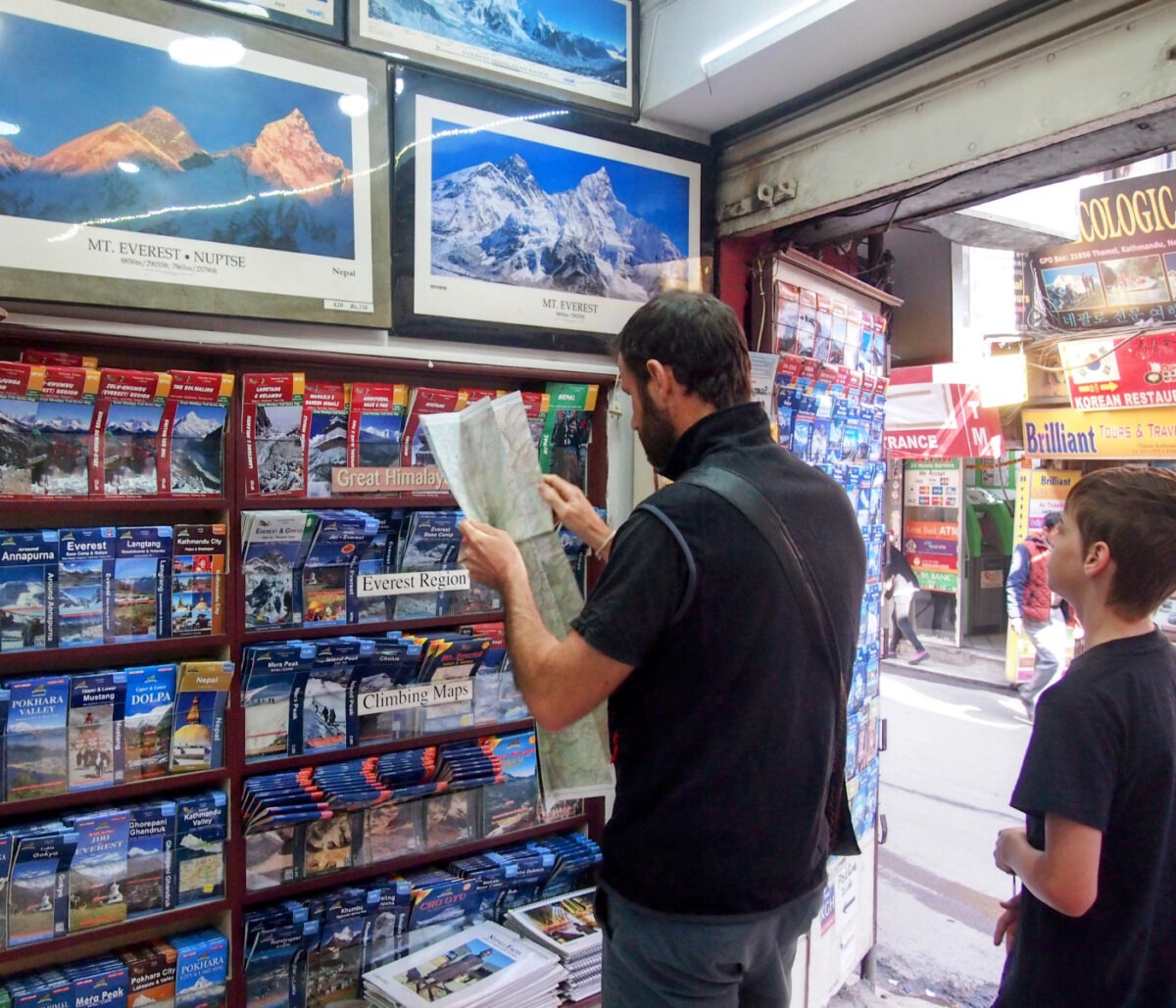
Also, paper maps may be useful to you. Alternatively, download Google Maps to use offline. I’m watching the people in North Carolina trying to find alternate routes to get from A to B bypassing washed-out roads and bridges. Some people may need maps, particularly if you’re somewhere unfamiliar.
Does everyone know how to read a paper map today? It’s not hard, but do kids still do that in school? My kids know, we used maps for trekking.
Food
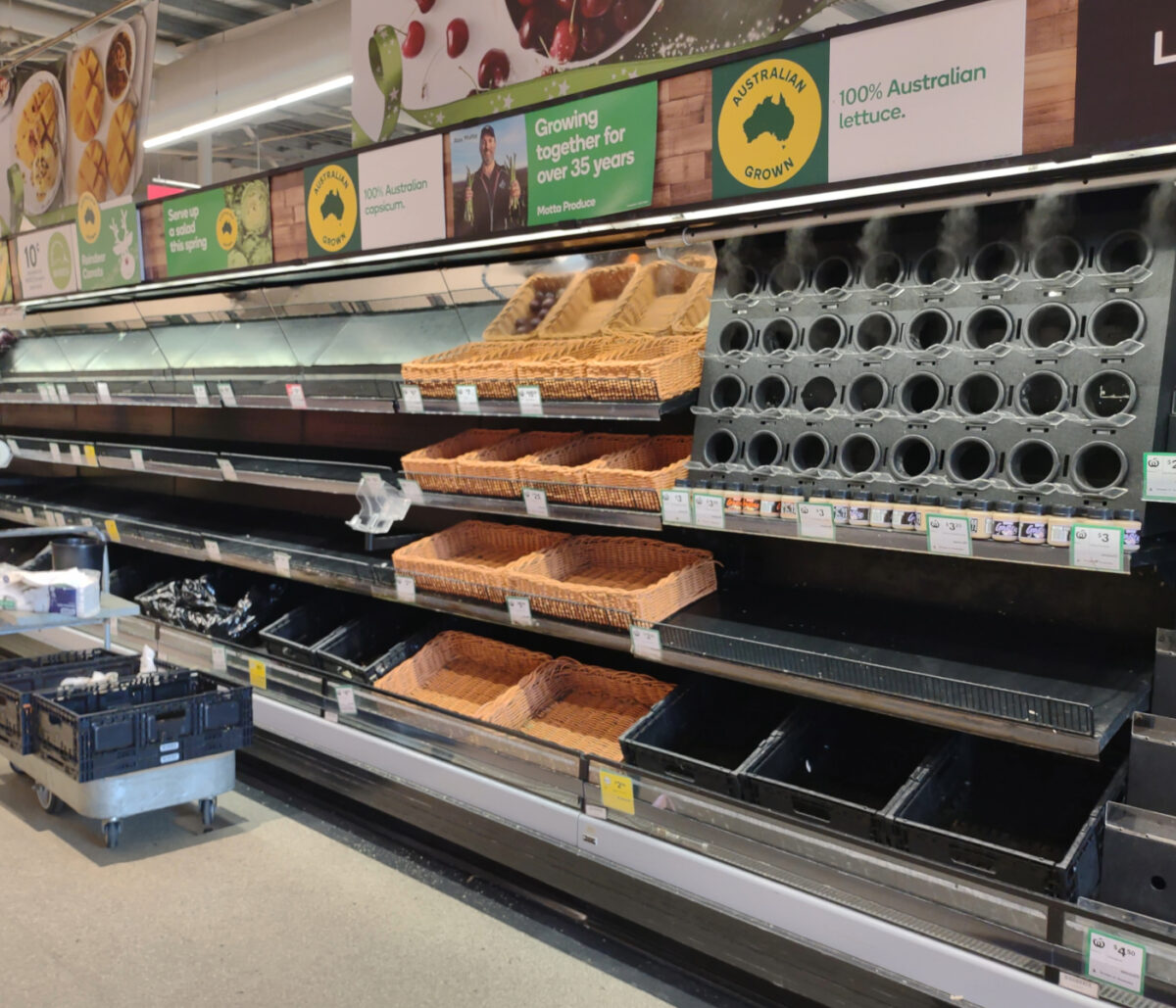
Food was really a non-issue for us, we had plenty in stock. Which was good because the supermarket shelves were pretty bare when we eventually got there.
We’re not “preppers” we’re just a normal family, but we do live in a remote area that is prone to supply issues so we keep a stock. I always have plenty of good quality salt (because it’s important for your health), butter, olive oil, and meat. We have a garden that gives us enough fruit and veg so that’s not a major worry. The cyclone did kill a lot of plants though. This year, more food plants will be coming under cover if we’re warned of another major event.
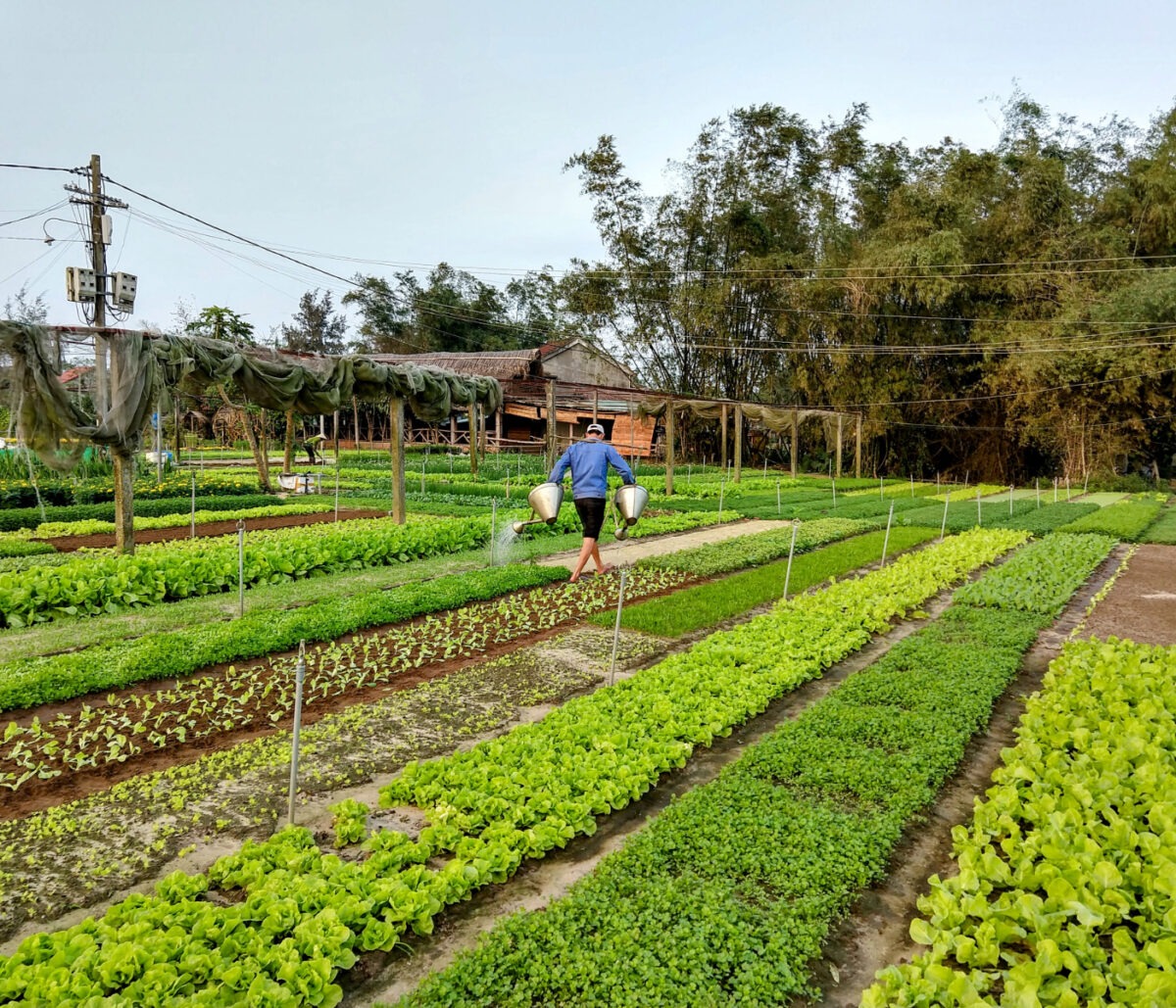
If you don’t have a generator to power your fridge/freezer, you’re probably going to need canned foods. We don’t need cans generally.
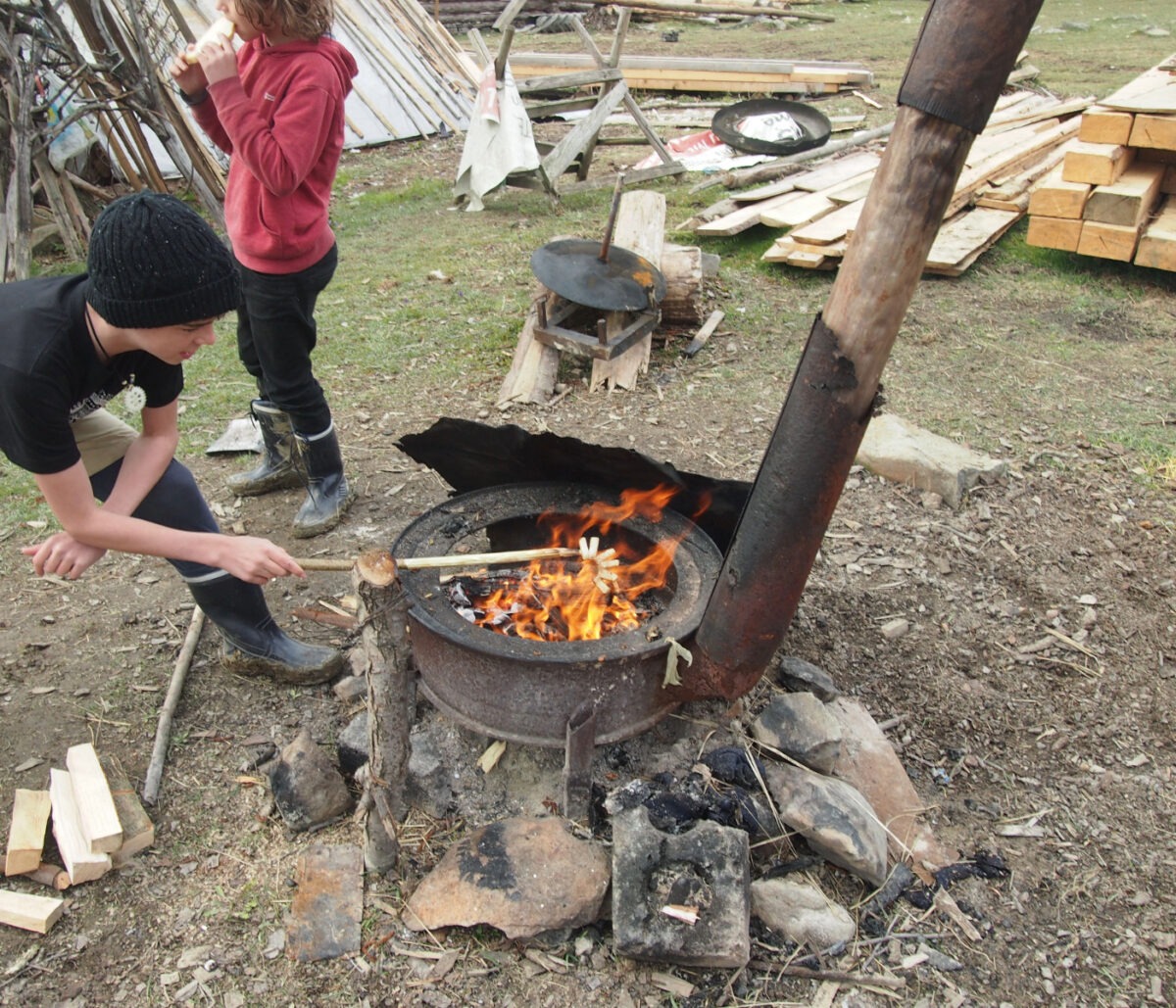
Animal food was a big problem in the last cyclone. We almost ran out, and we have maybe 70 animals. Think about how you will feed your pets when you can’t get to the shops. I’m growing more animal feed for the herbivores and omnivores (chickens) and we keep a bigger stash of dog and cat food (and litter) since that experience.
We have poultry, they are an insurance policy against food shortages.
Fuel
If the power is out and the roads are closed you’re quite likely to run short of fuel. Fill your tanks and if you can, store fuel. Have fuel cans. Our local petrol station was opening for an hour or so per day, running the pumps off their generator.
This year we’ll do better, we didn’t have enough fuel cans last year. Also, check your generator is working. Our neighbours’ wouldn’t start and they couldn’t get to the shops to buy the part they needed.
Another elderly neighbour couldn’t lift her fuel tank to fill her genny, my boys were running relays to help her keep the genny running. Again – know your neighbours! Maybe have some wine or chocolate in stock to thank them for good deeds. We really appreciated these gifts when there were no shops!
Tools and Machinery
I’ve been watching homesteaders make repairs after the floods in the US. They have top-notch chainsaws, bulldozers, and all sorts of heavy machinery. It’s impressive and resourceful. I wish we had more!
A basic tool kit on hand is a very good thing to have. We’ll be making sure our chainsaws are topped up with fuel and easy to get to.
My favourite cupboard “Mum’s tool cupboard” is right outside our front door. Dad’s tools tend to reside wherever he puts them down. They’ll need rounding up.
Tape
They tell us to tape our windows here if a cyclone is coming. I’ve only done it once, for Yasi, and it was awful to get off. Find out what sort of tape you need and maybe have some on hand. It will probably sell out.
Candles and Lighting
We have candles but we’ve never used them other than for aesthetics. We do use head torches and electric lanterns.
We’re lucky that where we live, we can wake up at dawn and go to bed just after sunset. Our whole day is naturally lit. Lighting isn’t a major big deal for us, but some sort of torch, and the capability to power it, is essential.
You either need spare batteries or charged power banks. We have both, always. The power banks were essential for travel.
We have a huge waterproof torch (like this) to use outdoors. When we have to go outside at night it’s essential. The flat base makes it much more valuable for working outside in rain than any of the hand-held models. These torches are also cheap.
For travel we always had head torches and we use them at home often.
I’d love to own an old oil lamp. The sort I used for light to do my homework as a British kid in the 70s. There was a strike and no power, I don’t remember what it was all about now, but that oil lamp was great. Maybe I’ll find one at an antiques fair somewhere.
Household Supplies
I bought a new mop last year once we could get to the shops. You need a good mop or two!
The other thing we use a lot is vinegar for cleaning. It’s cheap and it kills some bacteria and black mold spores. When you can’t do laundry kitchen paper is essential. Bleach does not kill black mold spores. After a few days of rain and no aircon, we had black mold starting to grow on the walls in the house and mildew on some furniture. Vinegar was my best friend.
I also have a black mold killing gel that I only found out about a few days ago. It works! I’ve used it on outside walls I’m painting right now. It’s this stuff.
You know which products you use to keep your house clean, make sure you have a supply in advance.
It goes without saying these days that TP sells out. Doesn’t everyone keep a stash of TP?
Baby wipes are handy for keeping yourself clean in an emergency, as they were when hiking in the Himalayas for 3 weeks with no showers.
Bugs and Snakes
After the cyclone we saw a lot more snakes than usual, they were washed out and seeking higher ground. There’s not much you can do about that but it’s something to be aware of. If you’re travelling do you know which snakes are venomous in that region?
In theory, bugs will be washed out too. I remember our friends who were stuck up trees during the tsunami telling us about the bugs. We didn’t see a bug invasion after the cyclone, maybe because we have loads of chickens, but we did have masses of mosquitos.
The same family described the tsunami waters as “brick soup.” One of the kids had a foot impaled by a nail sticking through a chunk of wood. It was a miracle they survived.
If you’re in a building with no screens on the windows and no power for the aircon, you’re going to have to open the windows and let the critters in!
We own mosquito nets. In an emergency, we can use them. We purchased mosquito nets for trekking in the Hill Tribe villages in Thailand over two decades ago. Since then we’ve used them only a handful of times in Sri Lanka, where older buildings have ventilation openings and no screens.
You can hang a mosquito net from a nail banged into the wall. You tuck the ends under your mattress.
Electronic bug zapper devices are a good thing to have if you have a few mosquitos in a sealed room, but I wouldn’t use them in an open room because they just attract more. We have several and we use them a lot. These ones work well, the smaller ones aren’t so good. Fruit flies are attracted to my kitchen scraps in the counter-top compost bin. These lanterns zap those too.
I’m not a huge fan of chemical sprays and repellents but I do keep some for emergencies.
Medical Kit
Our home medical kit is almost as minimal as our travel medical kit. We have paracetamol, band-aids, dressings, bandages (including elasticated for snake bites) plus various antiseptics (Iodine is very useful), aspirin, and antihistamines.
Our animal medical kit is bigger. When you have livestock you become your own vet. We have scalpels, wormer, vaccines, boluses, syringes, everything!
I always have loads of supplements and basic sweetener-free electrolytes. Because we live in a hot climate and we run and work hard on the farm, we’re never without our electrolytes. Our best recommendation is the brand LMT, in the flavourless variety. I have to order them online in Australia from a special website, they’re not on Amazon.
If you need medications you need to have them. It must be so hard for diabetics or anyone who relies on medications. Particularly if they need refrigeration. We’re good, nobody here needs anything.
I went through the medical cupboard yesterday and did a mini stock-take. We need more of a few items. Maybe you should check what you have? I always used to say that kids never get sick when the shops are open. This is why on the road we carried supplies like this.
Final Thoughts on Prepping
It’s odd how travel (and now homesteading) has made us more prepared than most to tackle some of what the climate or nature throws at us. It’s something I’d never even thought about until this morning! I guess camping would do the same. We’ve seen how other cultures and peoples deal with a lack of what many would consider essentials. They have workarounds and essential skills. It’s almost like life has taken my family down a path, showing us what we needed to learn. Every day we learn a little more, this is worldschooling, you can’t not learn. I hope somebody out there found this post just a touch useful. Good luck out there, stay safe, and share the love!
I’ve made the conscious decision to be offline more in my life. If you’ve followed us on Facebook for the last 12 years, or are in our Living Differently Group, I’m not really posting there any more. It’s pointless, there’s no reach. My life is very full without being a slave to the socials. Find us here on the website and reach out any time. We have a trip coming up to Java, early next year. It’s booked, so that will appear here. At the moment I’m busy working on portdouglasaustralia.com.au. That is now a much bigger chunk of our income than this huge site. It’s very sad that Google has chosen to kill this one off but I’ll never take it down. If you’re interested in our farm/homestead, we’re on Instagram here as Tropical Food Gardening. That website has also been killed by Google and I haven’t updated it at all recently, there’s no point. Take care out there.
If you'd like to hire a car during your stay, use this car rental comparison tool to find the best deal!
We also suggest you take a look at this company to get a quote for all kinds of the more tricky adventure or extended travel insurance.
Try Stayz / VRBO for an alternative way to find rentals on homes/apartments/condos in any country!

